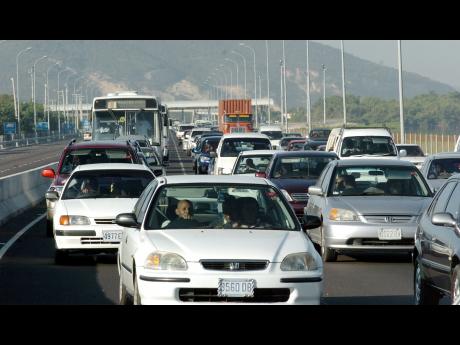The exchange rate is the price of a currency relative to another. It is determined by demand and supply.
In the Jamaican context, for example, when the demand for US dollars is greater than the supply, its price appreciates against the Jamaican dollar, which is the same as the Jamaican dollar depreciating against the US dollar.
We demand foreign exchange to pay for the goods and services we import from abroad, to buy goods and services when we travel to foreign countries and to make investments abroad or in securities denominated in foreign currencies.
The government and Jamaicans who borrow money from abroad require foreign exchange to service their debts and speculators demand foreign exchange to take advantage of any perceived opportunity to make short-term gains.
Jamaica increases its supply of foreign exchange when we export goods and services, when tourists come here and buy our goods and services, when foreigners make investments in Jamaica by buying local businesses, starting new businesses or buying securities and when the government, Jamaican businesses and individuals borrow foreign currency.
In addition to the net inflow of foreign currency arising from a surplus of exports of goods and services over imports, foreign currency flows into a country when its real interest rates that is, nominal interest rate less inflation are high relative to rates obtainable elsewhere in the international market.
On the other hand, high inflation may lead to expectations of a country’s goods and services being less competitive in the market, leading to a fall in exports and reduced foreign currency earnings and a lower price for the local currency.
UNFRIENDLY BUSINESS
Political uncertainty or instability may affect exchange rates adversely. The market may deal cautiously with a currency if it is unsure of the direction a government may take or if government actions are perceived to be unfriendly to business.
The price of foreign exchange is sometimes affected by seasonal factors. For example, the Jamaican dollar tends to hold its value quite well against foreign currencies during the tourist season when earnings of foreign currency are high, and higher inflows of remittances at year end tend to have the same effect.
Governments through their central banks intervene in the foreign exchange market by selling some of their reserves of foreign currency to boost supply thereby protecting the value of the local currency. They may also buy foreign currency if it advantageous to do so, and the monetary authorities may raise local interest rates to encourage locals to hold local currency rather than foreign currencies.
When the value of the Jamaican dollar falls, it affects all of us. The price of imports increases in terms of the Jamaican dollar as it requires more Jamaican dollars to pay for them. The impact on the price of some goods, such as motor vehicles, is seen readily.




Leave A Comment